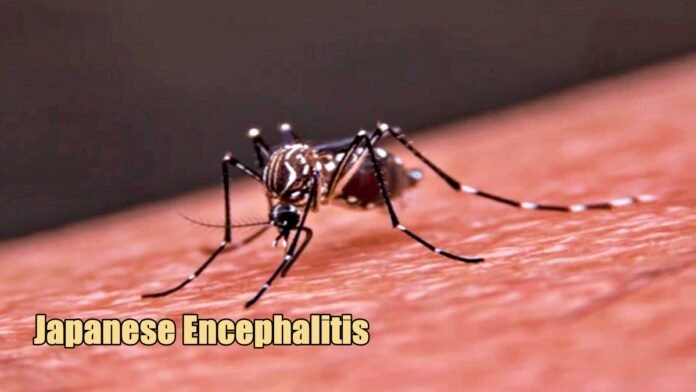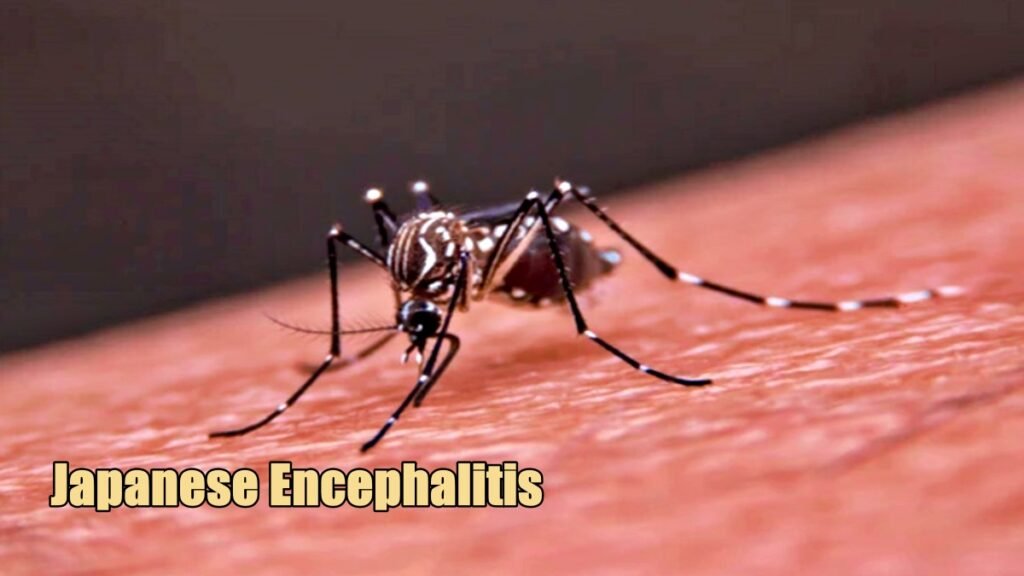
New Delhi: As the weather shifts and winter approaches, health concerns rise along with cases of viral diseases. Among these, Japanese Encephalitis (JE) is emerging as a serious threat, particularly to children. This mosquito-borne disease, if untreated, can lead to severe complications, including a mortality rate of up to 30%. Here’s what you need to know about JE, its symptoms, treatment, and preventive measures.
Understanding Japanese Encephalitis: A Mosquito-Borne Threat
Japanese Encephalitis Virus (JEV) is a flavivirus transmitted primarily by mosquitoes, especially Culex tritaeniorhynchus. The disease is prevalent in India and many other countries. It primarily spreads through mosquitoes that acquire the virus from infected birds and water-dwelling animals, particularly pigs, before transmitting it to humans.
Children are especially vulnerable to JE, and common symptoms include:
- Headache
- Vomiting
- Seizures
- Fever
If the infection progresses to the brain, it can cause encephalitis, leading to severe complications or death.
The Importance of Early Treatment
Immediate medical attention is crucial if symptoms of Japanese Encephalitis appear. Treatment focuses on managing symptoms and preventing the virus from affecting the brain. Delay in treatment can significantly reduce the chances of survival.
Vaccination: The Best Defense Against JE
The Japanese Encephalitis Vaccine is the most effective preventive measure, reducing the risk of infection by 80-90%. It is vital to follow the recommended vaccination schedule:
- First dose: Administered at 9 months of age.
- Second dose: Administered between 16 and 24 months.
Ensuring timely vaccination for every child can dramatically lower the risk of JE-related complications.
Prevention Tips: Shielding Against Mosquito Bites
As JE spreads through mosquito bites, prevention measures are essential:
- Wear protective clothing: Opt for full-sleeve clothes to minimize skin exposure.
- Maintain hygiene: Keep surroundings clean to prevent mosquito breeding.
- Monitor symptoms: If flu-like symptoms occur, consult a doctor promptly.
- Spread awareness about vaccination: Encourage parents to vaccinate their children against JE.

A Global Health Concern
Though Japanese Encephalitis is a growing issue in India, it is also a global health challenge, affecting numerous countries. Increased awareness, early diagnosis, and preventive measures can significantly reduce the disease’s impact.
With rising cases during winter, staying vigilant and taking proactive steps can safeguard children and communities from this life-threatening disease.








































